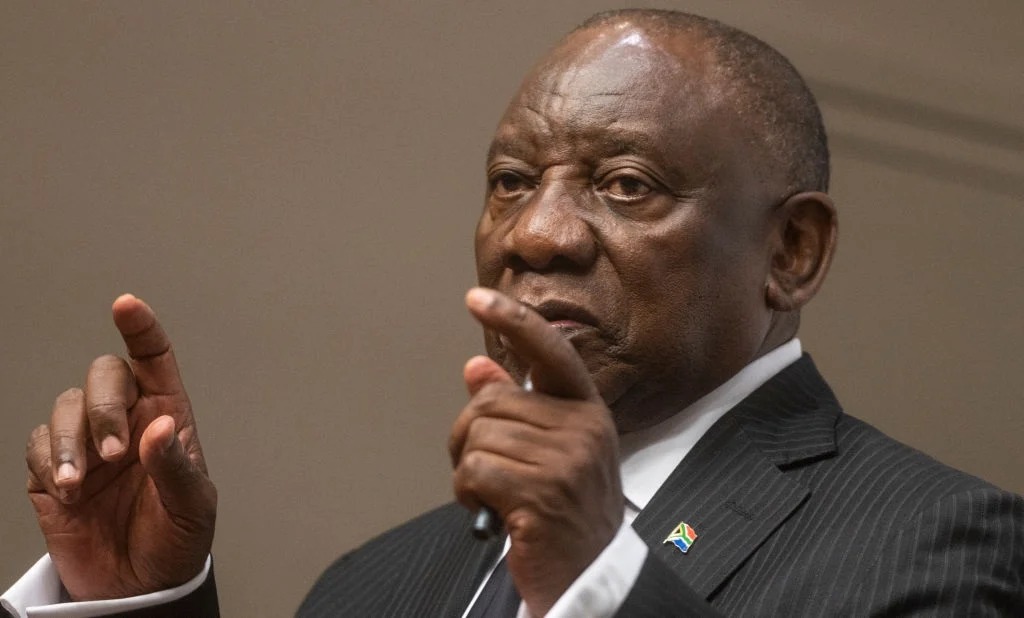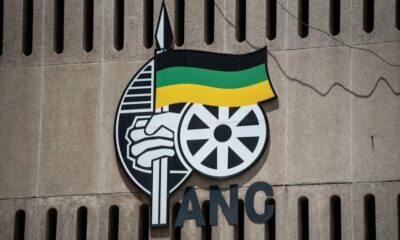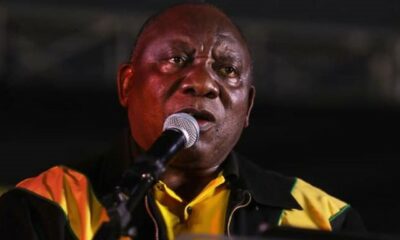Business
Storms and Scandals: Ramaphosa Admits Flaws in South Africa’s Expropriation Act

A Weekend of Weather Warnings and Political Reckonings
South Africans are bracing for another round of stormy skies and political turbulence. As the South African Weather Service warns of severe thunderstorms and flooding across large parts of the country, President Cyril Ramaphosa has quietly admitted that parts of the controversial Expropriation Act are unconstitutional.
It’s been a weekend of tension, both in the skies and in the state.
Storm Watch: Level 4 Warnings in Place
The South African Weather Service has issued Level 2 and 4 warnings for severe thunderstorms across central and eastern regions, stretching from Gauteng through parts of the Free State and KwaZulu-Natal.
The public has been urged to stay alert, with heavy rainfall and localised flooding expected to disrupt roads, power lines, and low-lying areas. Communities in rural and peri-urban areas have been advised to move livestock and avoid crossing flooded bridges.
For many Joburgers, the latest weather alert comes on the heels of a turbulent spring season marked by erratic heatwaves and heavy downpours, a reminder of how climate volatility is shaping everyday life in South Africa.
Ramaphosa’s Legal Admission: The Expropriation Act on Shaky Ground
While the rain pours outside, another storm brews in the political arena. President Cyril Ramaphosa, in a written affidavit, has acknowledged that portions of the Expropriation Act, which he signed into law in December 2024, do not comply with the Constitution.
The law, designed to guide how land and property can be expropriated for public use, including cases where compensation may not be required, has been heavily debated since its passage.
Ramaphosa’s legal team has asked the courts to “read in” amendments to correct the errors, rather than sending the entire law back to Parliament. But opposition groups want a full constitutional review, arguing that the process must start afresh.
The admission marks a rare political concession and could reopen a heated national debate on land reform, fairness, and property rights, issues that have defined South Africa’s post-apartheid landscape for decades.
Meanwhile, on the Markets…
Amid the political and climatic uncertainty, local markets ended last week weaker. The rand traded around R17.34 to the dollar on Monday morning, as investors eyed new inflation data expected this week. Economists predict inflation will remain stable after August’s 3.3% reading, though any surprises could influence the Reserve Bank’s next interest rate decision.
Mining shares continued to retreat, with major players such as Sibanye Stillwater, Harmony Gold, and Gold Fields seeing declines of between 6% and 9%, while global market jitters and a firmer US dollar added pressure.
A Country Balancing More Than One Storm
South Africa is used to weathering turbulence, literal and political. From economic headwinds to electric price battles and governance challenges, each week seems to bring a new test.
As storms roll in and courtrooms prepare for another round of constitutional debates, citizens are once again reminded of the delicate balance between progress and accountability.
The skies may clear soon. The politics, perhaps not so quickly.
Follow Joburg ETC on Facebook, Twitter, TikT
For more News in Johannesburg, visit joburgetc.com
Source: Business Tech
Featured Image: News24


























